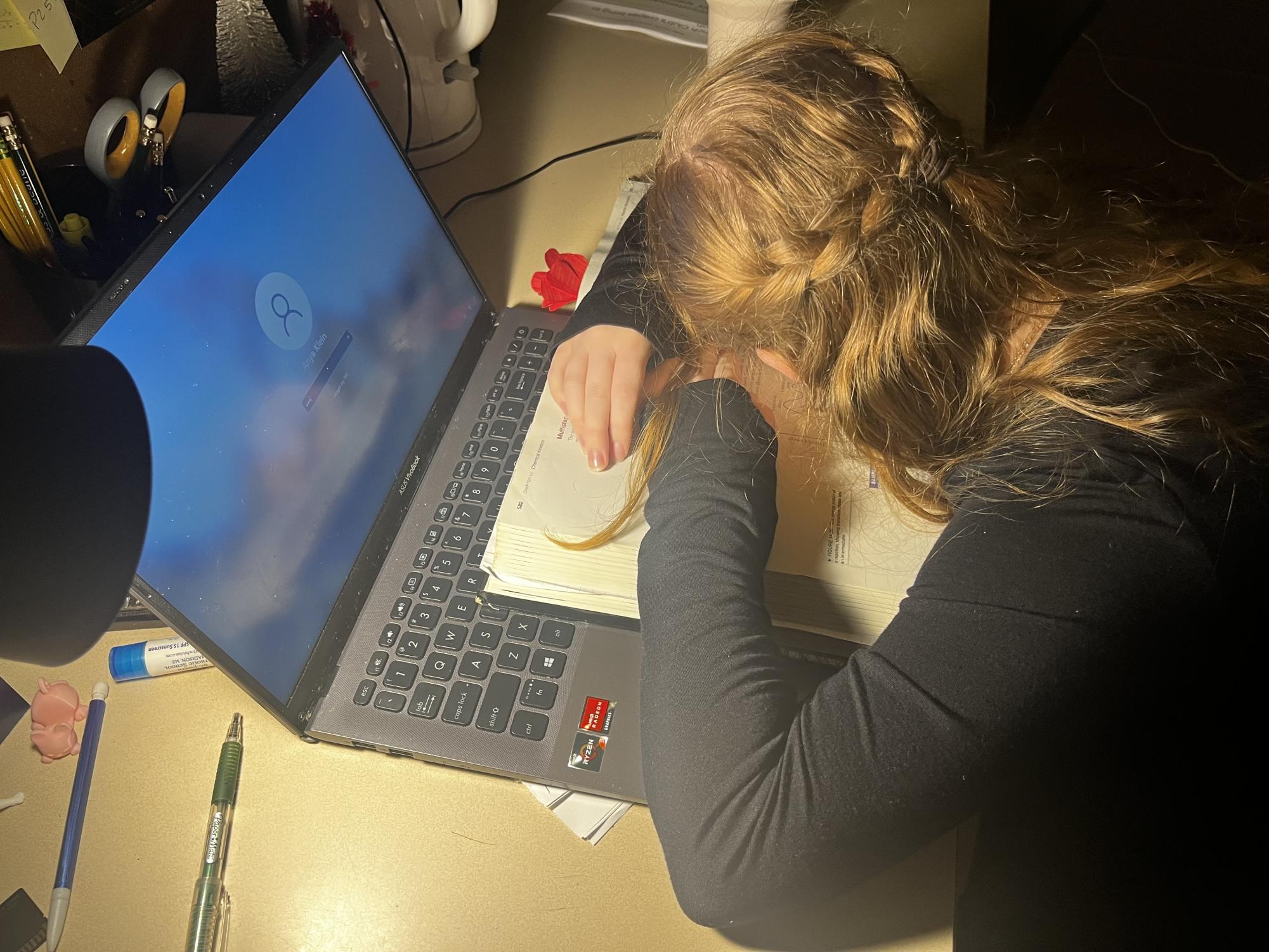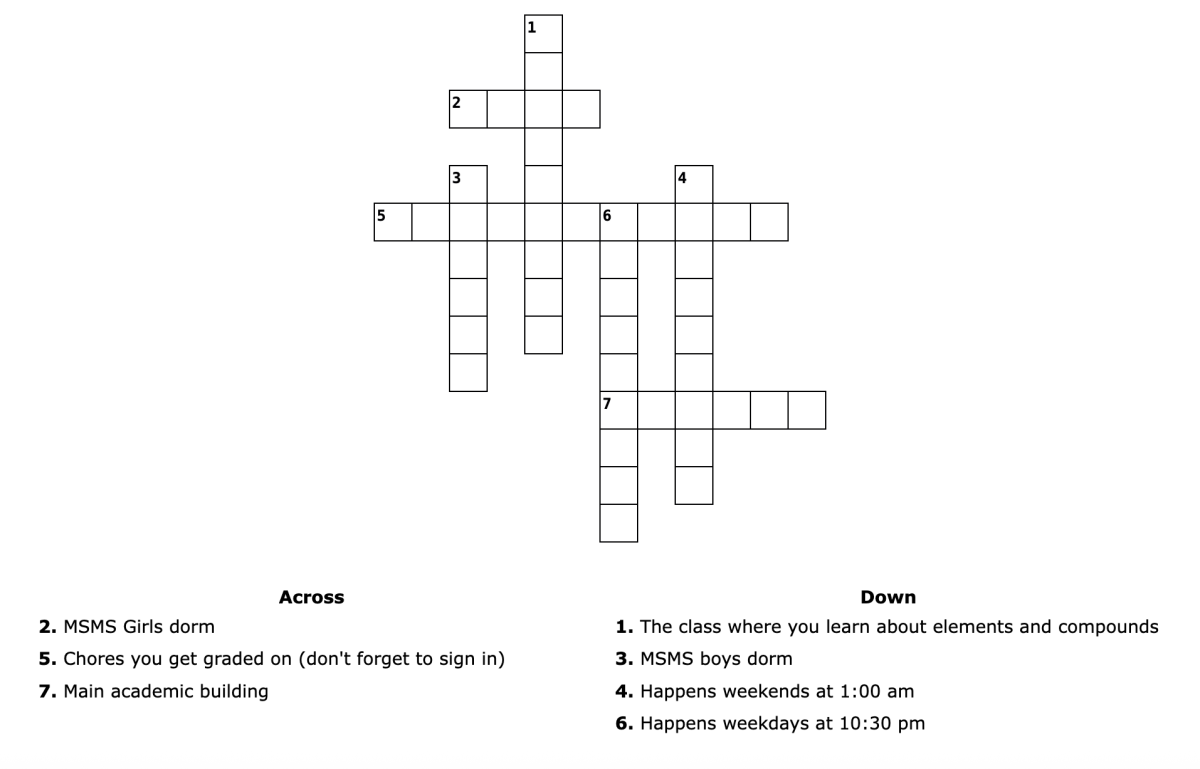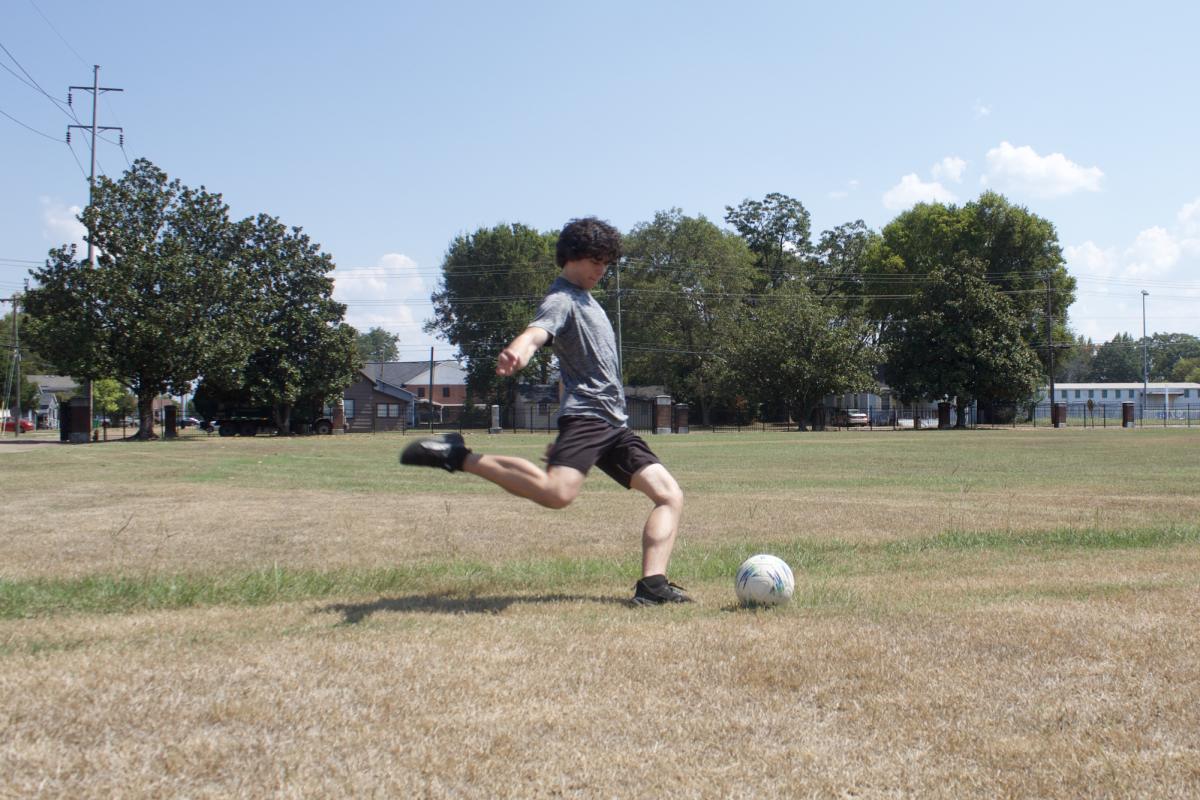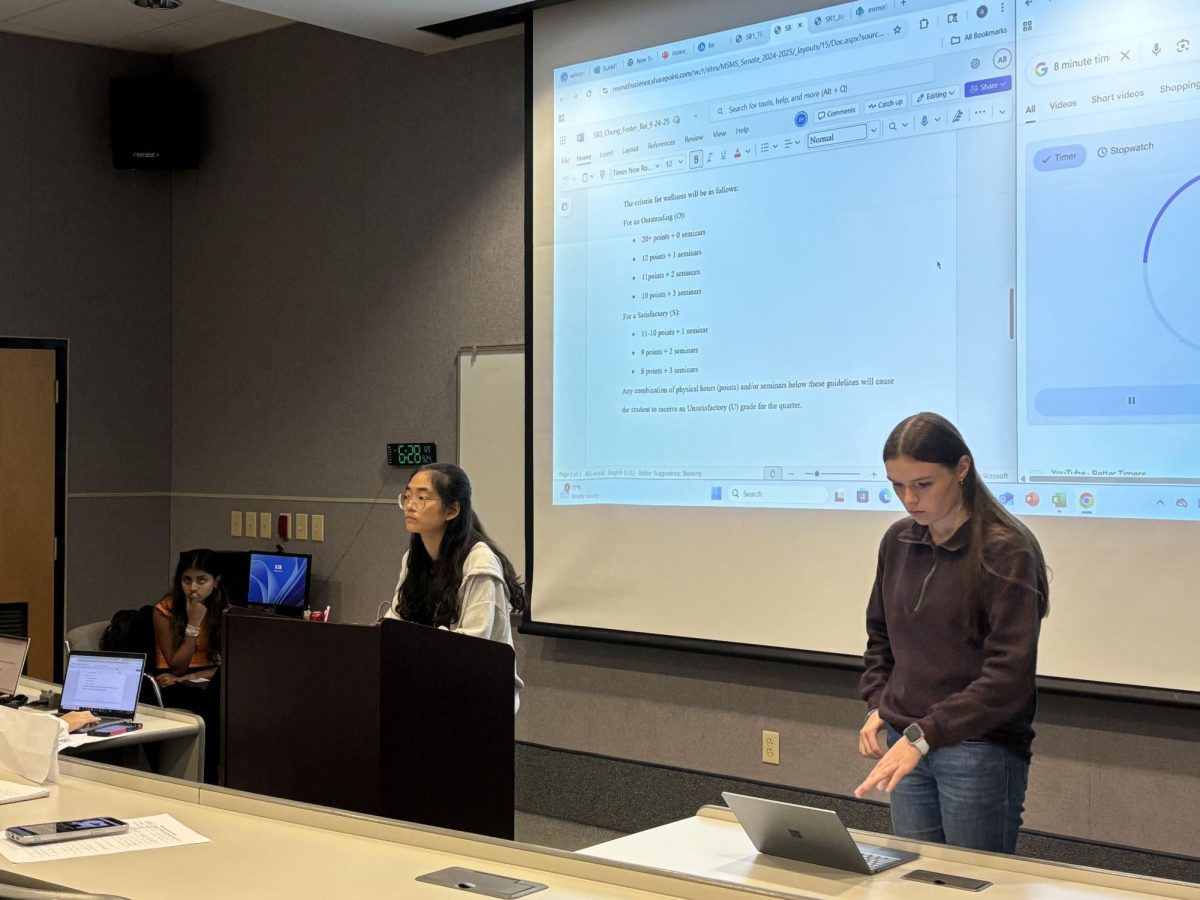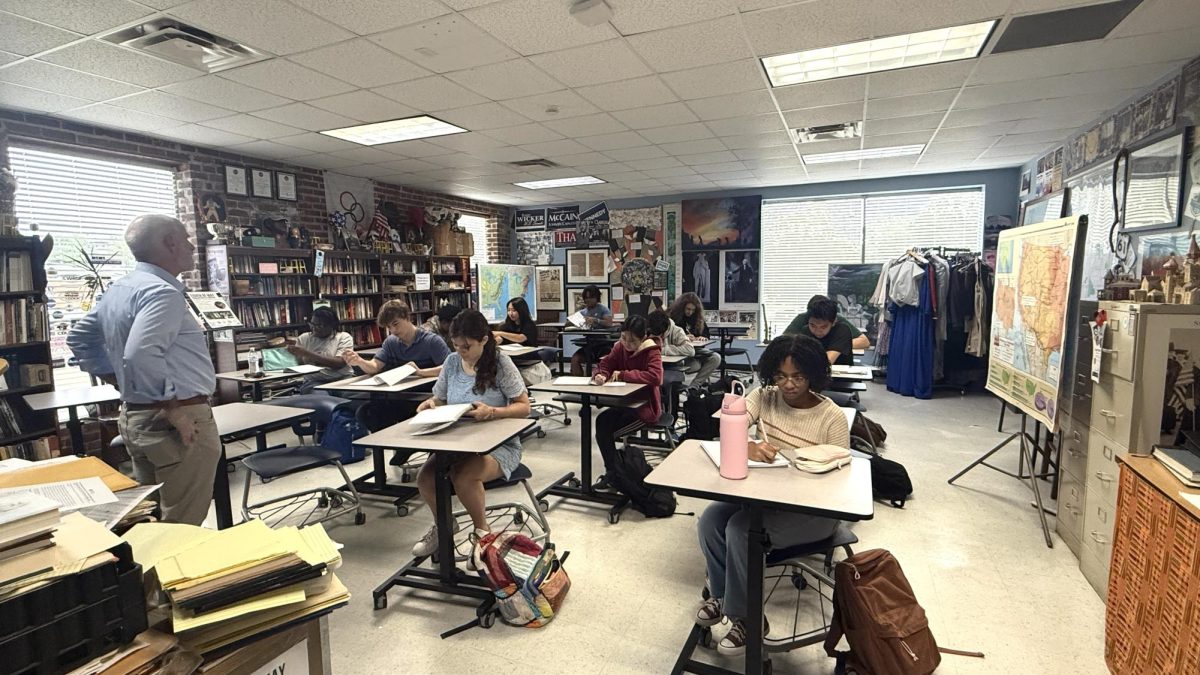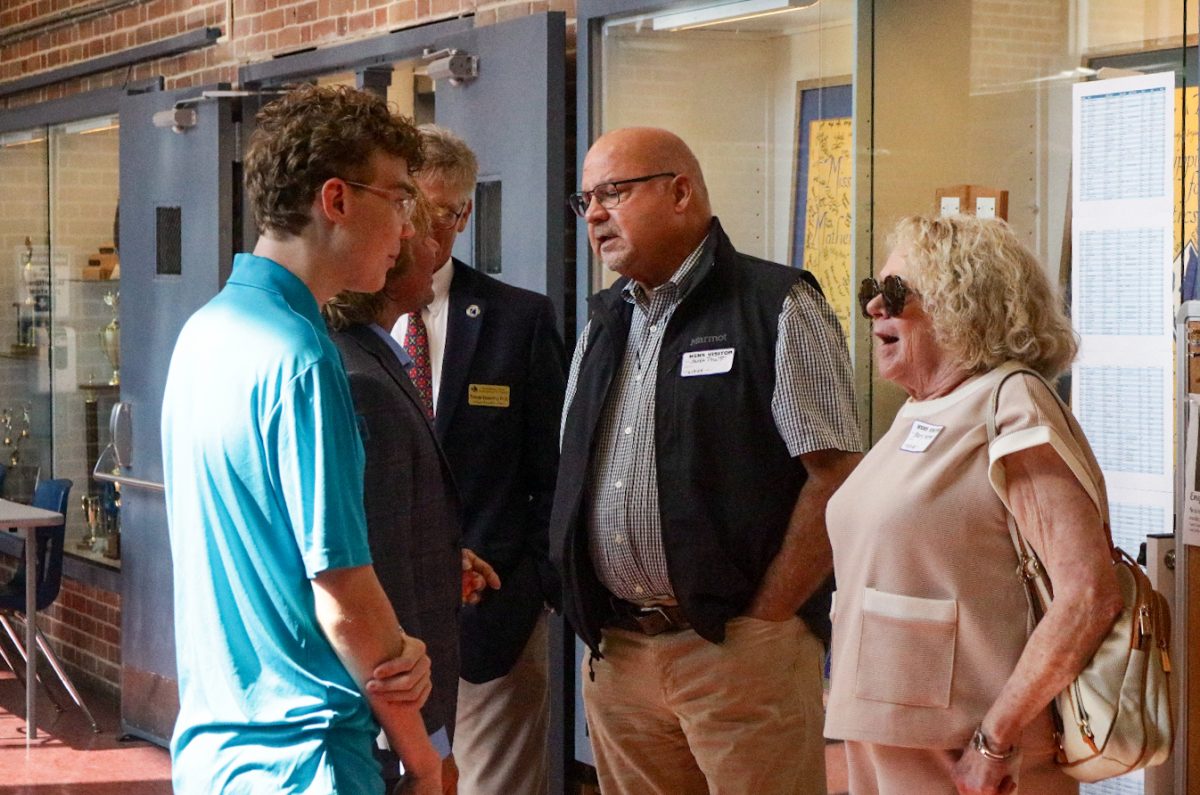It’s the night before the ACT, and you’re exhausted. After a long day of studying, you’re ready to hit the hay early so you’re prepared for your exam the next morning.
Unfortunately for you, there are some barriers standing in your way. You toss and turn for a while, trying to find sleep in your 80-degree dorm room. The air conditioning’s been out for a month, but you still haven’t learned how to cope with the sweltering heat. At 10:30 p.m. room checks, your hall’s resident assistant comes into your room and shines a flashlight in your face to be sure the person sleeping in your bed is, in fact, you.
This, of course, wakes you up.
When you try to go back to sleep, you’re distracted by the bugs crawling through the crack in your decades-old window. Being on the fourth floor, you wouldn’t expect to hear arguments happening from the sidewalk in front of the building, but when you’re awoken again by a screaming couple’s breakup, you learn that’s not the case.
This was a real experience of junior Megan Colley, and alarmingly, it isn’t a unique one.
Upon arrival at MSMS, students welcome an abundance of change into their lives. New living and learning environments are to be expected, but one change students don’t typically anticipate is the deterioration of their sleep quality. According to a poll sent to all current students with 69 responses, 53 people — or 76.8% of participants — said their sleep quality has either decreased (37.7%) or drastically decreased (39.1%) since transferring to MSMS. This alarming statistic suggests students’ sleep health is not adequately being supported and encouraged at MSMS.
Sleep quality declines at MSMS for a variety of reasons, but students have primarily cited academic and residential factors for it.
It’s no surprise the classes at MSMS are strenuous, but many students said the coursework goes too far and eats into time that should be allocated to sleep. Some students claimed they routinely must stay up until the early hours of the morning just to keep up with their workloads. This poses a serious threat to the quality of education they can receive during the day.
Junior Naomi Simpson said her ability to learn suffers in the second half of the day after a lack of sleep starts to catch up with her.
“It’ll usually be about five or six hours of sleep that I’m able to get. Usually, it’ll be enough to get me through lunch, but by sixth or seventh period, I’m just tired. I’m ready to be done with the day,” Simpson said. “I want to go lay in bed.”
MSMS Faculty have tried to find solutions to this problem. One of the biggest attempts to get students to bed on time has come from the modification of due dates to times before midnight. Each teacher is at liberty to set their due dates to whatever time they like, although the most common time is midnight. Alternative due dates have been popping up at times including 8 a.m., 5 p.m. and 9 p.m. — the most common of which is 9 p.m.
Some teachers, including Tony Green and Theo Hummer, have implemented 9 p.m. deadlines in their classes.
“As a student, I know the deadline was a motivating thing for me. It occurred to me I should make my arbitrary cut off time be when I hope students are awake, not at a time I hope they are asleep,” Hummer said. “I also wanted to put it at the end of study hours because that puts hitting send at a natural time when I hope MSMS routines would … be working before that moment and taking a break after it. I think having that two-hour study period every night is a really healthy habit.”
Although the sentiment of devoting study hours — 7 p.m. to 9 p.m. — to work and then having time to relax is well-intentioned, there are doubts among the student body about whether modified deadlines would help them adhere to that goal. According to the student poll, 84.1% of respondents said 9 p.m. or earlier deadlines would not actually help them sleep earlier. Interviewed students from the poll said even if they were submitting certain assignments earlier, the total amount of studying and researching they regularly must do would still keep them up late most nights.
Additionally, residential life at MSMS is not known to harbor ideal sleeping conditions, so even if students are able to finish all their work in a timely manner, they are still likely to be kept up by blaring train horns, noisy neighbors, frequent intercom announcements and even the sounds of occasional, off-campus gunshots.
Aside from just the noise complaints, students’ sleep is often compromised by issues involving the quality of the residence halls. For instance, Goen Hall frequently experiences false fire alarms triggered during the night. This means students are regularly awoken and forced to go outside in their pajamas late at night. Also, the heating and cooling systems for the dorms are finicky and commonly malfunction in certain parts of the buildings, meaning dorms can easily become too cold or too hot to sleep in comfortably.
Despite these problems, residence hall staff have implemented long-standing measures to try to get students in bed on time. One of these measures is the “lights out” policy, in which students can receive a Level I violation for being caught with any lights, computers or phones on after midnight.
Senior Elena Perry said the system is fundamentally flawed in the way it is enforced.
“People are still walking down the halls and being loud. Nobody cares until the lights turn on every 15 minutes [meaning an RA is walking down the hall],” Perry said.
Senior Lila Jacks said the system is too cut-and-dry for dorms filled with people in different work and social situations. Additionally, she said it is odd that many students, being legal adults, are still subject to a “bedtime” when they wouldn’t be at home.
“Some nights, I’m dreading that I have to stay up until [room check]. Other nights, I’m like, ‘I’m 18 years old. Let me hang out with my friends,’” Jacks said.
Additionally, many students, including Jacks, claim nightly room checks either wake them or keep them up. On weeknights, room checks are at 10:30 p.m., and on weekends, they aren’t until midnight. This results in many students feeling discouraged from going to sleep earlier, knowing if they do, they will be intruded on during the night.
Counselor Shelle Bates said the lack of sleep that results from these issues and a lack of time management can contribute to some serious physical and mental tolls on the student body.
“It creates a cycle of staying up late and then sleeping during the day. People think that pulling an all-nighter will make them better prepared for a test, [but] sleep deprivation can cause you to not be able to focus or retain information quite as well,” Bates said. “You [can become] easily frustrated. It’s dangerous; it can definitely make you more at risk for things like anxiety.”
According to Stanford Medicine, sleep deprivation “increases the likelihood teens will suffer myriad negative consequences, including an inability to concentrate, poor grades, drowsy-driving incidents, anxiety, depression, thoughts of suicide and even suicide attempts.”
To combat mental health concerns at MSMS, Bates and Counselor Heath Stevens have an open-door policy, so students are always welcome to come talk to either of them about any mental health concerns they may have. Additionally, MSMS has three contract mental health therapists on campus each week to provide services to students, which can be requested by students through either counselor.
Despite the presence of these undoubtedly helpful resources, some would say these efforts are reactive rather than proactive. It may be more beneficial to attempt to prevent mental health crises before they occur.
Aside from mental health concerns, Liz Brittain and other students have said their physical health has been compromised because of their poor sleep quality at MSMS.
“It was to the point where it started affecting my sports. I wasn’t mentally capable enough to do my sports, and, physically, my muscles weren’t able to recover,” Brittain said. “I’d end up almost injuring myself.”
Brittain’s experience is backed up by the Centers for Disease Control and Prevention, which proves a lack of sleep during adolescence can lead to an elevated risk for health issues such as obesity and Type 2 diabetes. A lack of sleep can leave students’ immune systems shot, metabolisms slowed, hormones disrupted and blood pressures elevated.
Chronic sleep deprivation can also risk students’ physical health by leading to elevated risks of drowsy driving. Drowsy driving causes more than 100,000 traffic accidents each year, and according to the National Highway Traffic Safety Administration, young drivers are involved in more than half of these incidents.
With the mental and physical health of Mississippi’s best and brightest at stake, it is essential to address the epidemic of poor sleep quality at MSMS. However, solutions are hard to come by.
Ideas like a 9 a.m. first period and stricter enforcement of the “lights out” policy have been proposed, but to many students, change will only come when they’re given more control over their personal habits.
Colley said finding a one-size-fits-all solution is unlikely. Instead, we should be flexible and allow students room to dictate their own sleeping schedules.
“I feel like sleep is a big issue here, but I [also] feel like every solution, people are going to object to, and I think you have to let people work on their own schedule,” Colley said.


